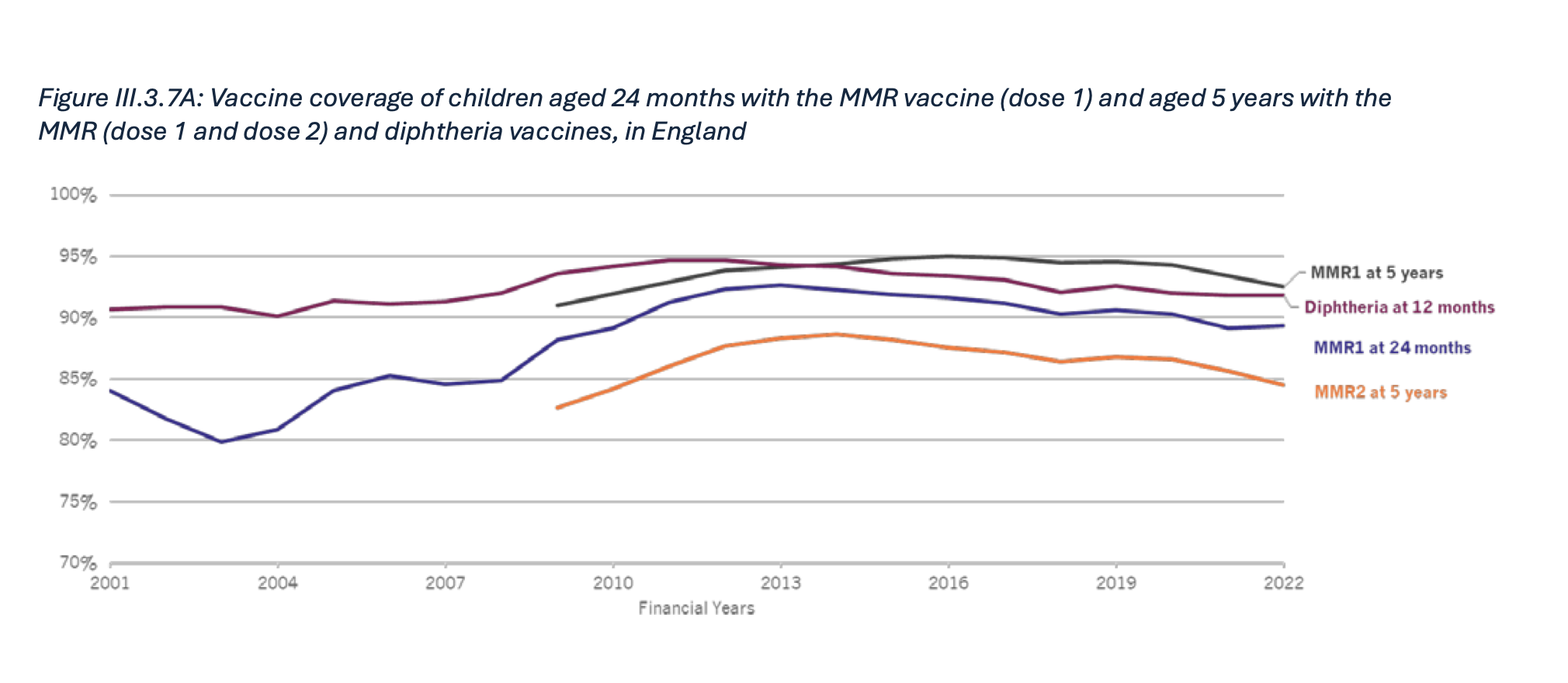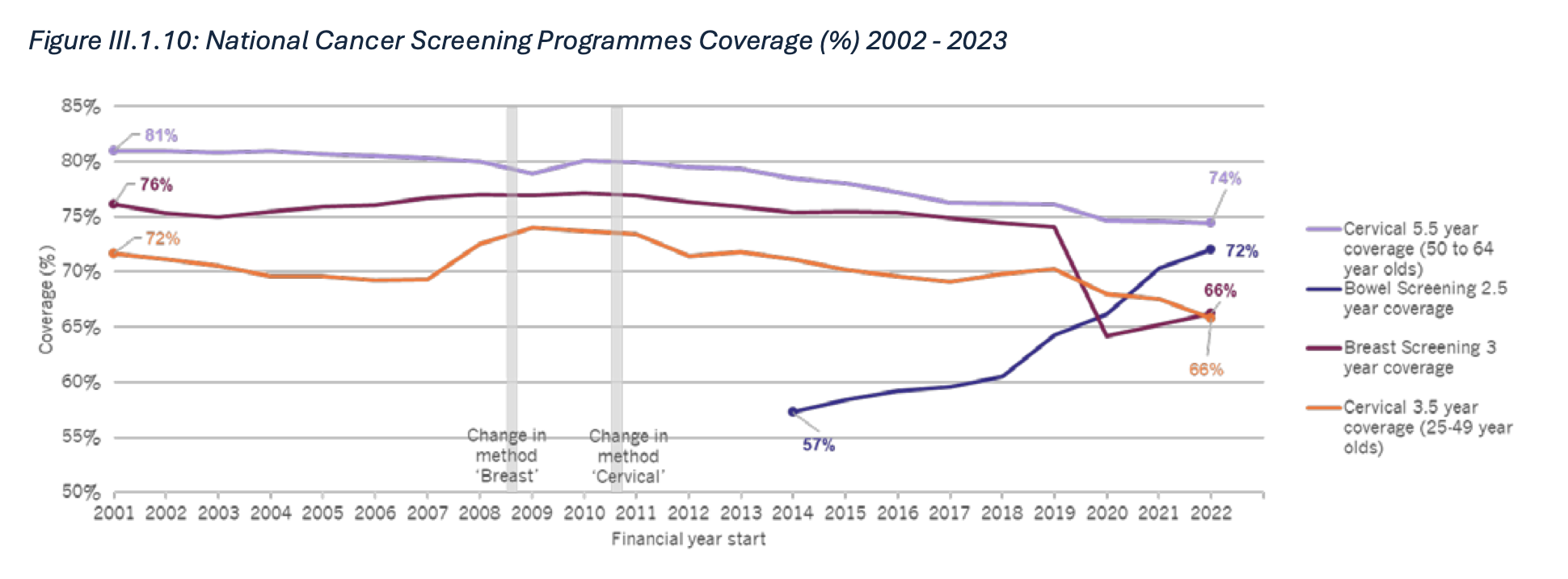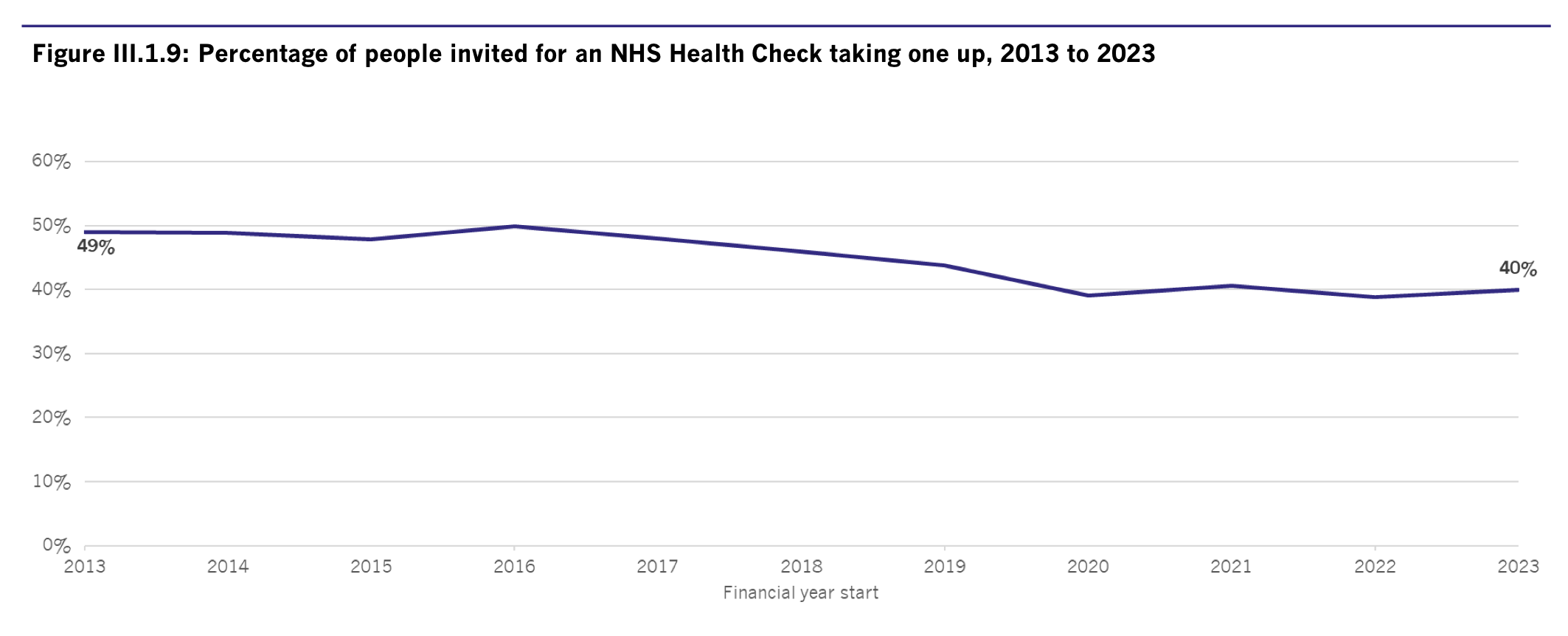Week 18: Vital signs
Lord Darzi’s independent investigation of the NHS was published this week.
It concludes that the NHS is in critical condition, and lays bare in detail many of the challenges, from waiting times to care quality.
The causes are attributes to a combination of austerity, a lack of capital, the pandemic, a lack staff and patient engagement, and management restructures.
As someone new to working with the NHS, my perspective is limited, but I have had a sense of an organisation that’s been through a traumatic time. Lots of things were, understandably, done in a hurry during the pandemic, and some of that infrastructure and ways of working now needs to be unpicked.
The merger of NHS England, NHSX and NHS Digital was also clearly a huge undertaking with some fallout, both in terms of people and systems. As a small example of this, I currently have 3 separate NHS email accounts and access to multiple separate intranets.
On a positive note, the report does say that the NHS’s vital signs remain strong, and that staff at every level have a shared passion and determination to make the NHS better – and I can vouch for this too.
Prevention, prevention, prevention
Several mentions of prevention in the report.
It notes that the fall in childhood vaccination rates needs to be addressed, with coverage having now dropped to between 85% and 95%:

It also reports that fewer adults are participating in some of the key screening programmes, such as for breast cancer and cervical cancer, although bowel cancer screening rates have increased:

Participation rates in the NHS health check programme have also dropped by 20%

However the impressive achievements of the Diabetes Prevention Programme gets a shout out. Not one I know about, but I’d be interested to know what part the digital service plays in that.
Prevention also played a major role in the Prime Minister’s initial response to the report, as well as ‘moving from an analogue to a digital NHS’.
All good words, but quite a challenge to deliver!
Product metrics
Following our launch last week, I’ve been working on designs for pages which would let us see some metrics from our service. Currently these can only be retrieved by a developer running a script, which isn’t ideal.
The risk with metrics is never having enough of them and always wanting more. It’s also hard to identify the metrics which will actually be useful and lead to improvements, or which will at least prompt further research.
But we can start basic, and take it from there.
Still not sure whether to call it a dashboard or not though.
MOJ Design System
I had a nice chat with Helen Nickols and the gang working on the MoJ Design System, who have put some fresh life into it after a period of semi-abandonment.
It was great to hear how much thought they’d put into their new date picker and I’m hoping to borrow as much as possible when re-using it in an NHS context.
Links
The Central Digital and Data Office (soon to be merged?) published Addressing the gaps in service delivery content which promises to start improving the GOV.UK Service Manual. One to watch!
Owen Jones has written Weeknote 1 including a reflection on the ‘zombie package’ of the autocomplete, which got a small update this week. As I mentioned a few weeks back, we’re using an autocomplete feature in our onboarding interface, so it’s good to see this get some attention, even if the planned rebuild is still a way off.
A redesign of NHS.UK went live this week. I’m looking forward to hearing more about this from the team who’ve worked hard on it.
Cold innit?